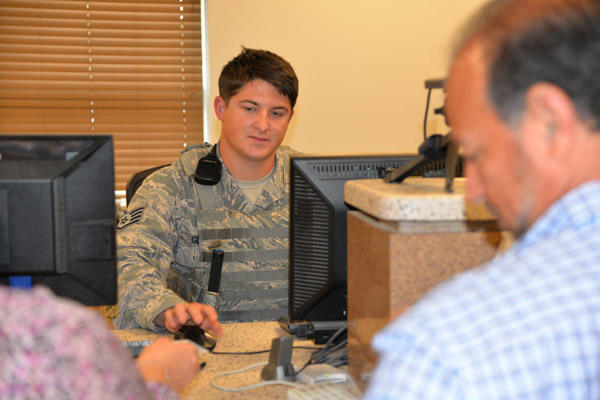As savvy employers adjust their hiring and on boarding processes to embrace the veteran employee, a question often arises around background checks: Are background checks necessary for veteran job applicants?
To get answers, I enlisted the help of Jason Rennie, SVP of Sales & Marketing, at Info Cubic, a leading provider of employment screening and drug testing. Here, Jason answers some common questions HR professionals have about background checks on veterans:
Is there a greater emphasis on background checks today than in the past?
Jason: Background checks are a critical part of pre-hire screening for many reasons:
- Protection of Company Assets and Reputation - Companies spend years building value and a good reputation in their communities and industries. A poor hire can damage a company's good reputation.
- Protection from Claims of Negligent Hiring and Retention - Courts have consistently held that employers have a legal responsibility to exercise reasonable care to protect their customers and employees. This "reasonable care" extends to hiring and retaining employees.
- Maximizing the Hiring Investment - Whether it is a new position or a replacement, a new hire costs the company money. The cost of a comprehensive background check is typically under $50 and a limited background check under $25 – a minimal upfront investment.
- Job Competence – Does your applicant really have experience operating a D10 Dozer or was it a Bobcat? A background check can help you understand there is a HUGE difference between the two!
- Some Applicants Lie – While we'd like to assume every job applicant is truthful, we know that's not the case. A background check can reveal dishonesty and exaggeration.
How does a background check on a military veteran differ from that of a civilian?
Jason: It really doesn't. The scope of the background check for a military veteran and a civilian applying for the same position should be consistent. One difference would be perhaps the employment verification. For example, assume an employer is requesting to verify the last three to five years or more years of employment history -- the military veteran's previous work history may include military service verification, assuming that the applicant was active in the time period previously mentioned.
Are there special considerations when conducting a background check on a veteran?
Jason: The single biggest consideration may be the time associated with conducting the verification of military service. Most providers make their first attempt to verify military service by utilizing the Department of Defense Service Member Database. This is a quick search and many providers stop at this point, whether they were able to verify the veteran's service or not. For clients requiring more in depth findings, we might contact the National Personnel Records Center and even contact the supervisor/base.
Because of their military service, are veterans able to hide things from their past?
Jason: No, I'm not aware of any special capabilities that veterans have to intentionally "hide" things from their past. However, it is a complex question. Here's an example: If the individual spent time in Iraq as an active duty member of the U.S. military, it is unlikely (but not necessarily impossible) that she/he will have any criminal records from an Iraqi court. However, if the client wants full coverage for the search, then they may decide to conduct a criminal check in both the U.S. and the country where the duty was served.
Official Military Personnel Files are available with limited information to the public. Although the information received varies, most likely you will receive information such as a name, service number, dates of service, branch of service, and final duty status. The majority of the information is not available without the written consent of the individual whose record is involved. There is also a Report of Separation that may be available. However, that information does not include records of criminal/court offenses committed while serving.
Each branch of the military has its own lower Court of Military appeals which is used as a central repository for criminal records and as a checks and balances entity for Courts-Martial offenses filed at military base courts. All Summary (equivalent to a petty misdemeanor), Special (equivalent to a misdemeanor), and General Courts-Martial (equivalent to a felony) offenses are reviewed and filed at the individual branch's Court of Military Appeals. If the judgment is upheld, and the defendant does not further the appeal, the case will be closed and remain at that court. If the appeal is supported, then the case moves on to the U.S. Court of Military Appeals. In order to request these records, you must go through the appropriate avenue for each branch of the military. The request for personal information must be in writing, and the timeframe to receive records back can range between 5 days and 6 months (extreme circumstances can be as long as 2 years).
What about an applicant who currently resides on a military base?
Jason: Generally, a U.S. military base is not specifically considered to be sovereign U.S. territory/possession (whereas, for example an Embassy or Aircraft Carrier are), but that is not to say U.S. laws do not apply. While the majority of bases are located inside the U.S. itself, the Navy maintains a significant number of facilities abroad, either in U.S.-controlled territories or in foreign countries under a Status of Forces Agreement (SOFA). The U.S. and Spain have such an agreement in place. For example, any members of the Navy and their dependents while in Spain must prove their status with documentation specified in the SOFA or by a special identification card. In terms of criminal jurisdiction, under the SOFA in place, Spain recognizes the importance of disciplinary control by the U.S. military authorities and will consider requests for a waiver of criminal jurisdiction made by the U.S. (meaning in high level terms, Spain has authority to prosecute crimes committed but will consider requests from the U.S. to have the U.S. prosecute the crimes).
Can a background check on a veteran tell me about their character and potential leadership abilities?
Jason: There is no real difference to be made between a military veteran and a civilian when it comes to the results of a background check and judging one's character, risk, and potential leadership. To be fair and just (and to avoid any discrimination allegations) an employer would treat both applicants the same.





